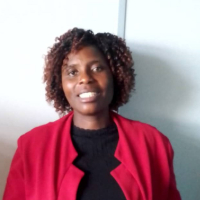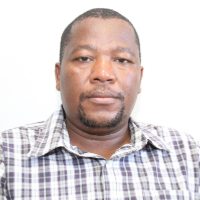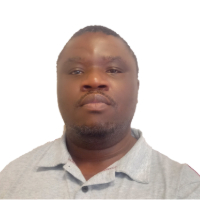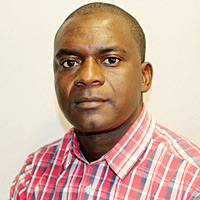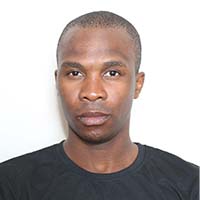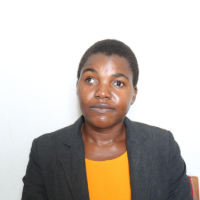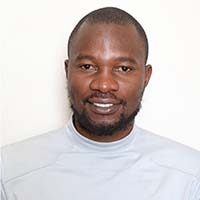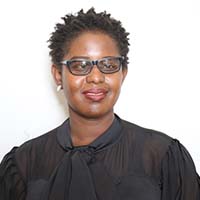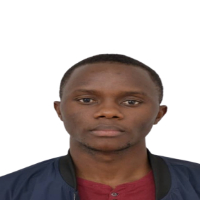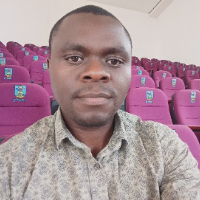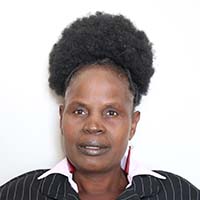Department of Applied Mathematics
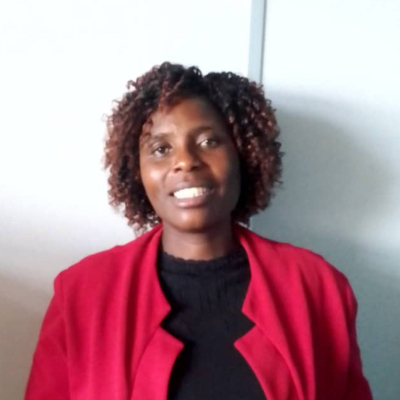
Dr Sarudzai Showa:
Chairperson
The Department started operating in 1991. The Department of Applied Mathematics currently has a staff complement of 1 Associate Professor, 11 Lecturers, 2 Research fellows, 2 Teaching Assistants, 1 Senior Technician and 1 Secretary. The Department of Applied Mathematics offers the degrees of BSc Honours in Applied Mathematics, MSc in Applied Mathematical Modelling, MPhil and PhD by research.
The core philosophy of the department is to apply mathematics to interesting and challenging problems relating to the world around us. Applied mathematics is a branch of mathematics that deals with mathematical methods that find use in physical sciences, biological sciences, social sciences, health sciences, computer science, engineering, business, agriculture, economics, finance, research and development, forecasting, production planning and industry. Thus, applied mathematics is a combination of mathematical science and specialized knowledge. The term "applied mathematics" also describes the professional specialty in which mathematicians work on practical problems by formulating and studying mathematical models. Applied mathematics is the application of mathematics to real-world problems with the dual goal of explaining observed phenomena and predicting new, as yet unobserved, phenomena.
A mathematics degree helps you develop skills in:
- Designing and conducting observational and experimental studies;
- Developing mathematical or statistical models;
- Analysing and interpreting data, finding patterns and drawing conclusions to support and improve business decisions;
- Information technology;
- Approaching problems in an analytical and rigorous way, formulating theories and applying them to solve problems in business, engineering, the sciences, and other fields;
- Dealing with abstract concepts;
- Presenting mathematical arguments and conclusions with accuracy and clarity;
- Advanced numeracy and analysing large quantities of data;
- Logical thinking.
You also develop key general skills that include:
- Communication skills;
- Time management;
- Organisational skills and working methodically and accurately;
- Teamwork and the ability to work independently.
- The Department offers undergraduate and postgraduate degree programmes that meet the needs of the student, the discipline, industry and society. The courses in the degree programmes enhance mathematical skills, and problem solving skills necessary in today's society.
- The degree programmes develop the students' ability to critically analyse data, present and interpret mathematical results in both a written and oral format.
- The Department encourages and reinforces the critical thinking skills of the students and provides an environment which will help all students to achieve their professional goals.
- Our academic staff are passionate about their discipline, and their teaching engages and inspires students.
- Our students are attached at reputable companies and our graduates are in high demand in both the private and public sector.
- Our graduates go on to rewarding careers in many different areas or to further studies at universities across the world.
CAREER PATHS
Applied mathematics graduates find opportunities in both the private and public sectors. In the private sector, they are in high demand in financial services, scientific and engineering research, software development, and management consulting. In the public sector, they analyze and develop public policy, safeguard digital resources, and process intelligence data. By training, applied mathematicians are cross-disciplinary, making them adaptable to emerging new industries and technologies.
|
|
NAME |
CAREER PATHS |
|
|
UNDERGRADUATE PROGRAMMES | |
|
1. |
B.Sc Honours in Applied Mathematics
|
1. Teacher at High School |
|
|
POSTGRADUATE PROGRAMMES | |
|
2. |
M.Sc in Applied Mathematical Modelling
|
1. Lecturer at University |
Modelling of Biomedical Systems Research Group (MBSRG)
The group uses mathematical modelling techniques to, identify, isolate and understand the factors governing the transmission and persistence of an infection. The models are used to project the incidence, prevalence and spatial distribution of the infection. Possible interventions such as quarantine, mass vaccination, educational campaigns, treatment and drug efficacy and safety are built into the models. The group is then able to evaluate the efficacy and cost effectiveness of public health intervention strategies and advise public health officials on optimal resource allocation. Mathematical modelling is an inexpensive, quick way of resolving a physical/biological problem by expressing it in mathematical language and then using mathematical tools to analyse the problem before reverting the solution back to the physical problem. In this regard, great potential exists for the employment of mathematical models to plan and evaluate intervention programs.
Research Activities
The Deparment is involved in the following research activities:
- Pharmacometrics: Pharmacokinetic and Pharmacodynamic modeling;
- Disease Modelling;
- Genetic Control Mechanisms;
- Ecological Modelling;
- Financial Modelling
- Climate Change Modelling;
- Time Series Modelling and Forecasting;
- Numerical Methods;
- Cost effectiveness analysis in Modelling.
The Department also offers courses in the following Mathematical and Statistical packages for Data analysis:
- MATLAB,
- MATHEMATICA,
- R,
- EXCEL
- SPSS,
- MINITAB,
- EVIEWS.
Community Engagement
- MATMA (The Matabeleland Mathematics Association) which was formed with the aim to improve the pass rate of Mathematics at all levels in the Matabeleland region is still being facilitated by staff in the Department of Applied Mathematics.
- NUSTSEC (National University of Science and Technology school enrichment centre) which caters for those students who can afford lessons for a minimum fee is being facilitated by the Department of Applied Mathematics.
- NUSTSEP(National University of Science and Technology school enrichment programme) programme which caters for underprivileged students from Bulawayo Province, Matabeleland North, Matabeleland South and the Midlands is facilitated by the Department. This is a partnership between the National University of Science and Technology; and the Ministry of Primary and Secondary Education. The students are taught Mathematics and Science subjects at ‘O’ Level and Mathematics, Physics, Chemistry and Biology at ‘A’ Level using the Activity based methodology.
Our Degree Programmes
BSc Hons Applied Mathematics
MSc Applied Mathematical Modelling
MPhil Applied Mathematics
Doctor of Philosophy in Applied Mathematics
Departmental Staff
